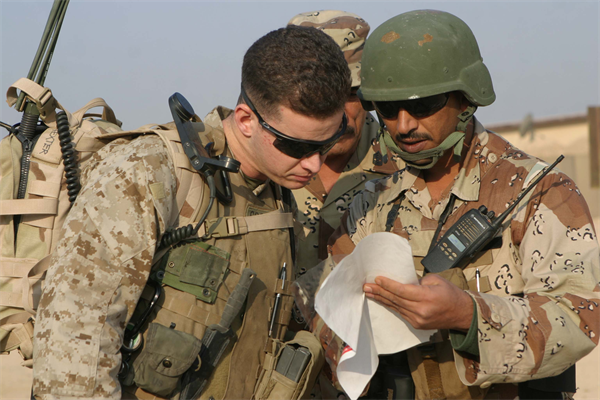There is no military solution in Iraq—so end the threats of U.S. airstrikes, bring home the Special Forces, and turn the aircraft carrier around. (Photo: Jayel Aheram / Flickr)
Beaver County Peace Links via Common Dreams
This is how wars begin.
Barack Obama says we’re not going back to Iraq. “American forces will not be returning to combat in Iraq,” he said on June 19th, “but we will help Iraqis as they take the fight to terrorists who threaten the Iraqi people, the region, and American interests as well.”
The White House says it’s “only” sending 275 soldiers to protect the embassy, it’s only sending 300 Special Forces, they’re only “advisers.” There’s only one aircraft carrier in the region, they say, and a few other warships. They’re considering missile strikes but they’re not going to send ground troops.
Iraq isn’t a start-up war for the United States—we’ve been there before. And these actions increase the danger we could be heading there again. We thought we had a president who learned the lesson, at least about Iraq—he even repeats it every chance he gets: “There is no military solution.”
This is a very dangerous move. President Obama’s words are right: there is no military solution.But his actions are wrong. When there is no military solution, airstrikes, Special Forces, arms deals, and aircraft carriers will only make it worse.
We need to stop it now. Before the first Special Forces guy gets captured and suddenly there are boots on the ground to find him. Before the first surveillance plane gets shot down and suddenly there are helicopter crews and more boots on the ground to rescue the pilot. Before the first missile hits a wedding party that some faulty intel guy thought looked like a truckload of terrorists—we seem to be good at that. And before we’re fully back at war.
Iraq is on the verge of full-scale civil war along the fault lines set in place when U.S. troops invaded and occupied the country more than a decade ago. We need to demand that our government do five things right away:
First, do no harm. There is no military solution in Iraq—so end the threats of airstrikes, bring home the evac troops and Special Forces, and turn the aircraft carrier around.






